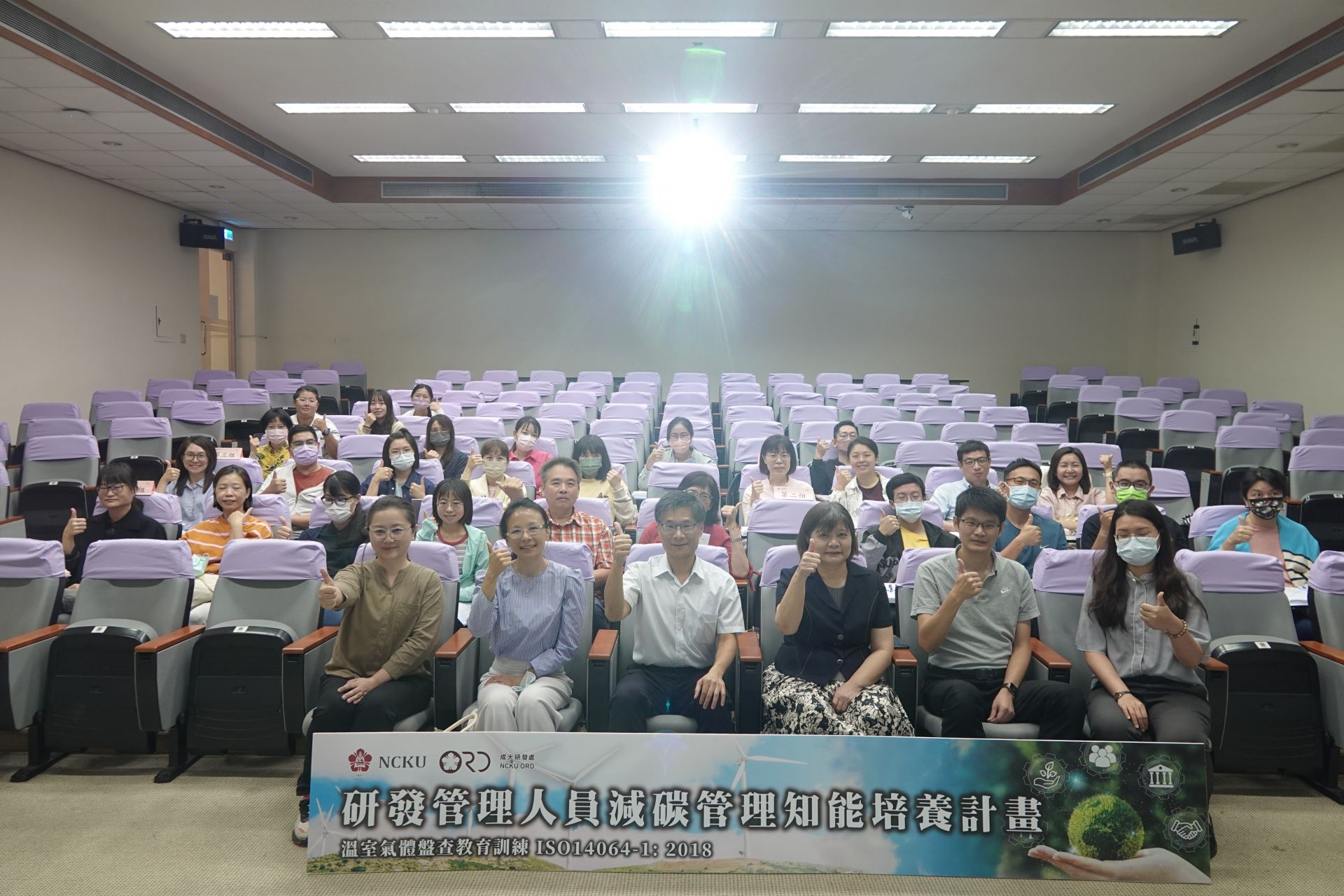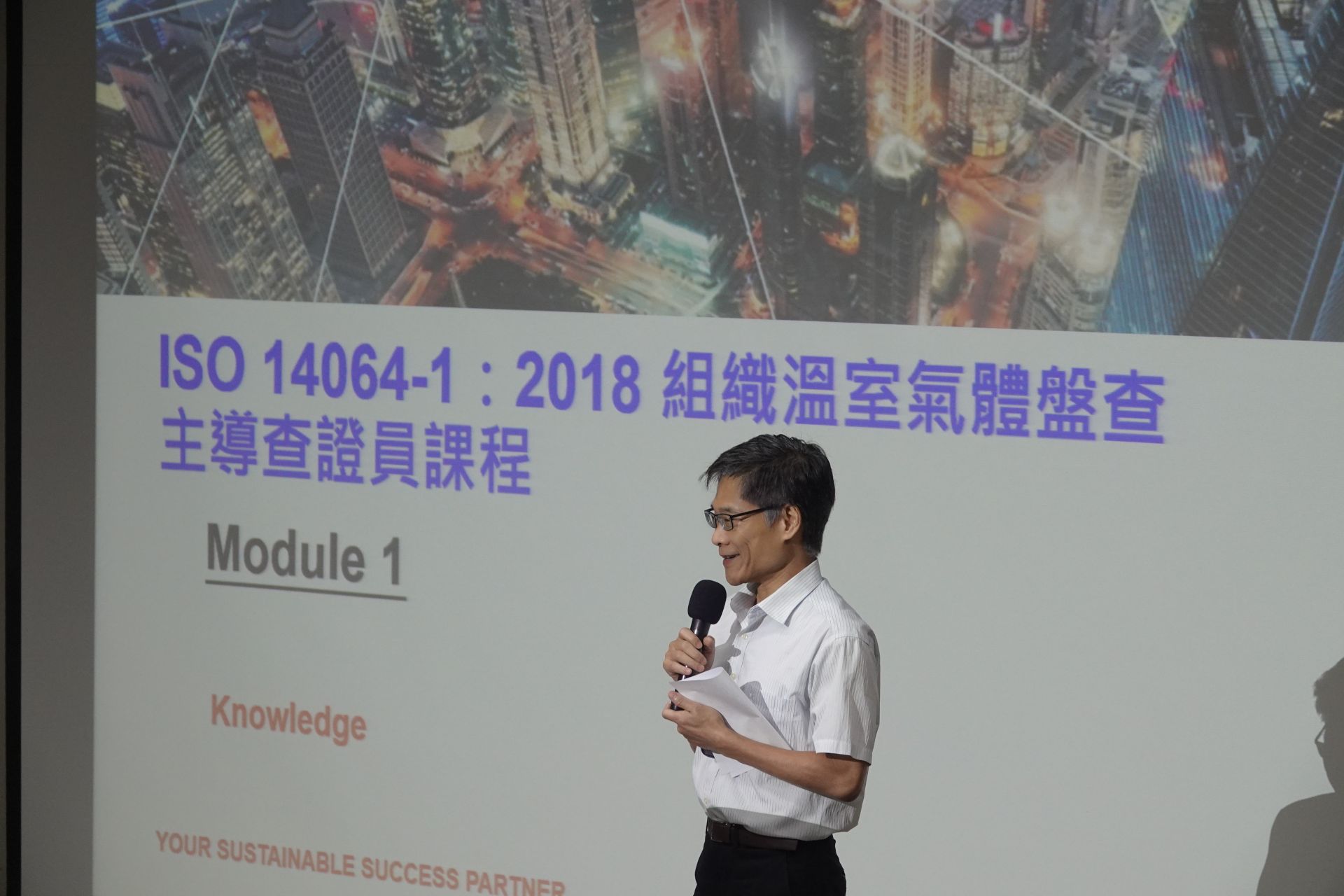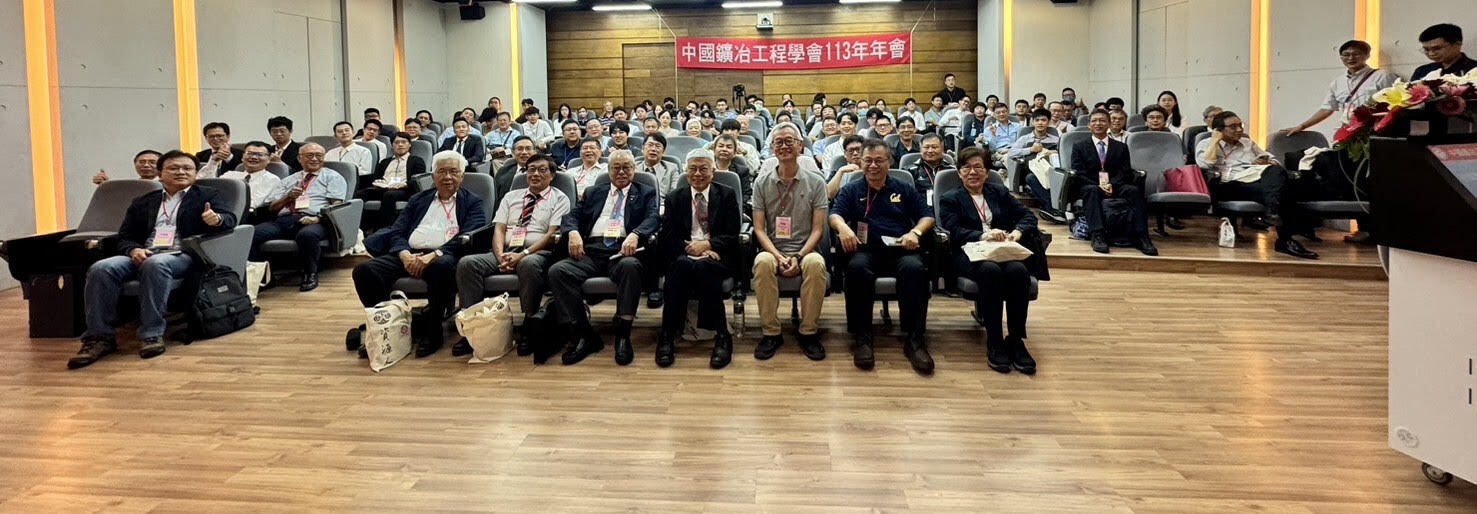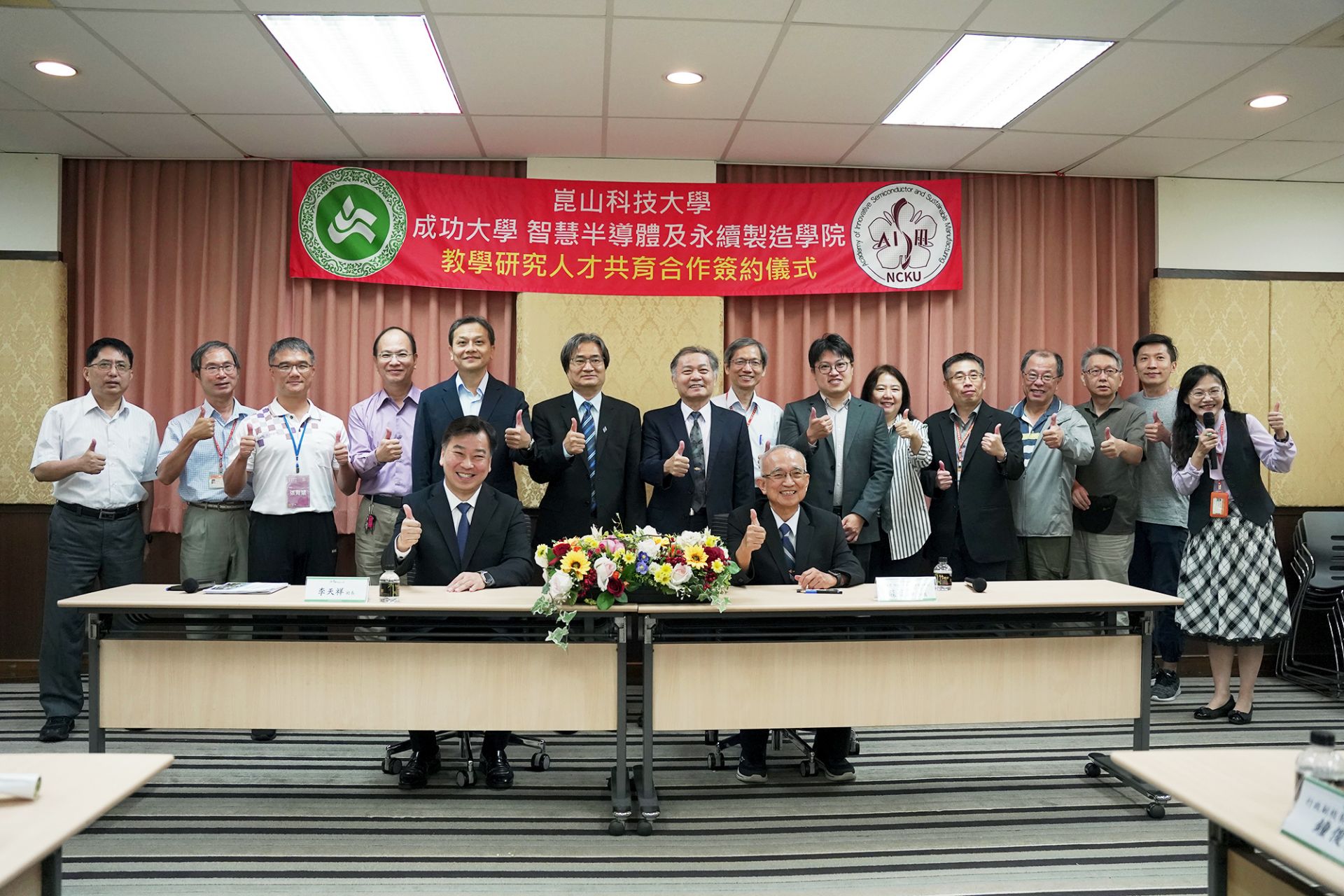SDG4
NCKU's 1st university-wide training on carbon reduction management for research and development personnel successfully concluded
Article and Images provided by the NCKU Office of Research and Development.
National Cheng Kung University, adhering to the concept of sustainable governance and actively responding to national policies, has initiated the university-wide training program for carbon reduction management skills for research and development personnel. This program focuses primarily on the ISO 14064-1:2018 greenhouse gas inventory standard, aiming to assist units in understanding the key aspects of greenhouse gas inventory and guiding them in formulating strategies to achieve carbon reduction goals.
From November 7th to November 10th, a 4-day intensive greenhouse gas inventory education and training course was held primarily for members of the NCKU Office of Research and Development and the General Affairs Office. The training covered the ISO 14064-1:2018 standard and was conducted by professional instructors from the Industrial Technology Research Institute and SGS, a third-party certification organization accredited by the Environmental Protection Administration. Those who completed the course will receive certification as "Lead Verifiers for ISO 14064-1:2018 Greenhouse Gas Inventory Standard" from the certified organization, further enhancing the carbon reduction technical and practical capabilities at NCKU. This initiative aims to facilitate industry-academia collaboration and collective efforts in promoting carbon reduction action plans.
NCKU Vice President Chuan-Pu Liu, leading the Research and Development Office team, actively participated in the training ceremony on November 7th. He mentioned that the Kaohsiung City Government has recently collaborated across southern counties, industries, inspection agencies, and universities, establishing a physical Net-Zero Academy in the Kaohsiung Software Park. This initiative aims to expand the dissemination of knowledge related to net-zero practices and provide certification training. The training covers greenhouse gas inventory ISO 14064-1, carbon footprint analysis ISO14067, and energy management system ISO50001. It is also tailored to meet the specific needs of local industries. "National Cheng Kung University is an important partner of the Kaohsiung Net-Zero Academy and bears an indispensable responsibility for professional carbon knowledge management and training. We hope that participants will embrace a desire for knowledge, truly implement the concept of carbon reduction, and contribute to the efforts for both the NCKU campus and the broader society."
Globally, greenhouse gas emissions have become an urgent issue, significantly impacting the Earth's environment. Over 110 countries have declared their commitment to achieving net-zero emissions by 2050 (or some countries by 2060), highlighting the urgency of carbon reduction actions. For organizations, active participation in the carbon reduction battle is inevitable in the future. Failure to implement greenhouse gas inventory and formulate carbon reduction strategies will directly affect their operational competitiveness. Furthermore, international trends indicate that industries are accelerating towards zero-carbon transformation, with green standards becoming a crucial consideration for corporate collaboration. Supply chain requirements are also increasing, such as Apple demanding suppliers to disclose data for greenhouse gas scopes one and two.
In the domestic context, policies are gradually strengthening. For example, the amendment proposal to the "Climate Change Response Act," passed in January 2023, stipulates that carbon-intensive enterprises will be required to pay carbon fees starting from 2024. The Financial Supervisory Commission (FSC) has also announced plans to promote the "Sustainable Development Pathway for Listed and OTC Companies" in phases, requiring all listed and OTC companies to complete greenhouse gas inventories by 2027 and related verifications by 2029. Taiwan will undergo four major transformations – "Energy Transition," "Industrial Transformation," "Lifestyle Transformation," and "Social Transformation" – along with two governance foundations: "Technological Research and Development" and "Climate Legislation." These will be supported by "Twelve Key Strategies," forming an action plan to achieve net-zero emissions goals. The government is actively addressing legal and organizational aspects and plans to progressively implement mechanisms such as carbon pricing, carbon inventory, carbon management, and natural carbon sinks by 2024.
This education and training program also adhered to environmental principles, coordinating with the NCKU Circular Economy student club's reusable lunchbox initiative. Over the 4-day course, a total of 128 lunches were ordered, successfully reducing the use of 128 disposable meal boxes. Simultaneously, participants were actively encouraged to bring their own utensils, such as chopsticks, further reducing the amount of event waste and the corresponding carbon emissions. This initiative fully aligns with the government's policy to reduce the use of disposable tableware and embodies the principles of a circular economy.
National Cheng Kung University, adhering to the concept of sustainable governance and actively responding to national policies, has initiated the university-wide training program for carbon reduction management skills for research and development personnel. This program focuses primarily on the ISO 14064-1:2018 greenhouse gas inventory standard, aiming to assist units in understanding the key aspects of greenhouse gas inventory and guiding them in formulating strategies to achieve carbon reduction goals.
From November 7th to November 10th, a 4-day intensive greenhouse gas inventory education and training course was held primarily for members of the NCKU Office of Research and Development and the General Affairs Office. The training covered the ISO 14064-1:2018 standard and was conducted by professional instructors from the Industrial Technology Research Institute and SGS, a third-party certification organization accredited by the Environmental Protection Administration. Those who completed the course will receive certification as "Lead Verifiers for ISO 14064-1:2018 Greenhouse Gas Inventory Standard" from the certified organization, further enhancing the carbon reduction technical and practical capabilities at NCKU. This initiative aims to facilitate industry-academia collaboration and collective efforts in promoting carbon reduction action plans.
NCKU Vice President Chuan-Pu Liu, leading the Research and Development Office team, actively participated in the training ceremony on November 7th. He mentioned that the Kaohsiung City Government has recently collaborated across southern counties, industries, inspection agencies, and universities, establishing a physical Net-Zero Academy in the Kaohsiung Software Park. This initiative aims to expand the dissemination of knowledge related to net-zero practices and provide certification training. The training covers greenhouse gas inventory ISO 14064-1, carbon footprint analysis ISO14067, and energy management system ISO50001. It is also tailored to meet the specific needs of local industries. "National Cheng Kung University is an important partner of the Kaohsiung Net-Zero Academy and bears an indispensable responsibility for professional carbon knowledge management and training. We hope that participants will embrace a desire for knowledge, truly implement the concept of carbon reduction, and contribute to the efforts for both the NCKU campus and the broader society."
Globally, greenhouse gas emissions have become an urgent issue, significantly impacting the Earth's environment. Over 110 countries have declared their commitment to achieving net-zero emissions by 2050 (or some countries by 2060), highlighting the urgency of carbon reduction actions. For organizations, active participation in the carbon reduction battle is inevitable in the future. Failure to implement greenhouse gas inventory and formulate carbon reduction strategies will directly affect their operational competitiveness. Furthermore, international trends indicate that industries are accelerating towards zero-carbon transformation, with green standards becoming a crucial consideration for corporate collaboration. Supply chain requirements are also increasing, such as Apple demanding suppliers to disclose data for greenhouse gas scopes one and two.
In the domestic context, policies are gradually strengthening. For example, the amendment proposal to the "Climate Change Response Act," passed in January 2023, stipulates that carbon-intensive enterprises will be required to pay carbon fees starting from 2024. The Financial Supervisory Commission (FSC) has also announced plans to promote the "Sustainable Development Pathway for Listed and OTC Companies" in phases, requiring all listed and OTC companies to complete greenhouse gas inventories by 2027 and related verifications by 2029. Taiwan will undergo four major transformations – "Energy Transition," "Industrial Transformation," "Lifestyle Transformation," and "Social Transformation" – along with two governance foundations: "Technological Research and Development" and "Climate Legislation." These will be supported by "Twelve Key Strategies," forming an action plan to achieve net-zero emissions goals. The government is actively addressing legal and organizational aspects and plans to progressively implement mechanisms such as carbon pricing, carbon inventory, carbon management, and natural carbon sinks by 2024.
This education and training program also adhered to environmental principles, coordinating with the NCKU Circular Economy student club's reusable lunchbox initiative. Over the 4-day course, a total of 128 lunches were ordered, successfully reducing the use of 128 disposable meal boxes. Simultaneously, participants were actively encouraged to bring their own utensils, such as chopsticks, further reducing the amount of event waste and the corresponding carbon emissions. This initiative fully aligns with the government's policy to reduce the use of disposable tableware and embodies the principles of a circular economy.

NCKU held its first university-wide Research and Development Management Carbon Reduction Intelligence Training Program from November 7th to 10th.

Vice President for Research & Development Chuan-Pu Liu specially led the Research and Development Office team to participate in the training ceremony.






















